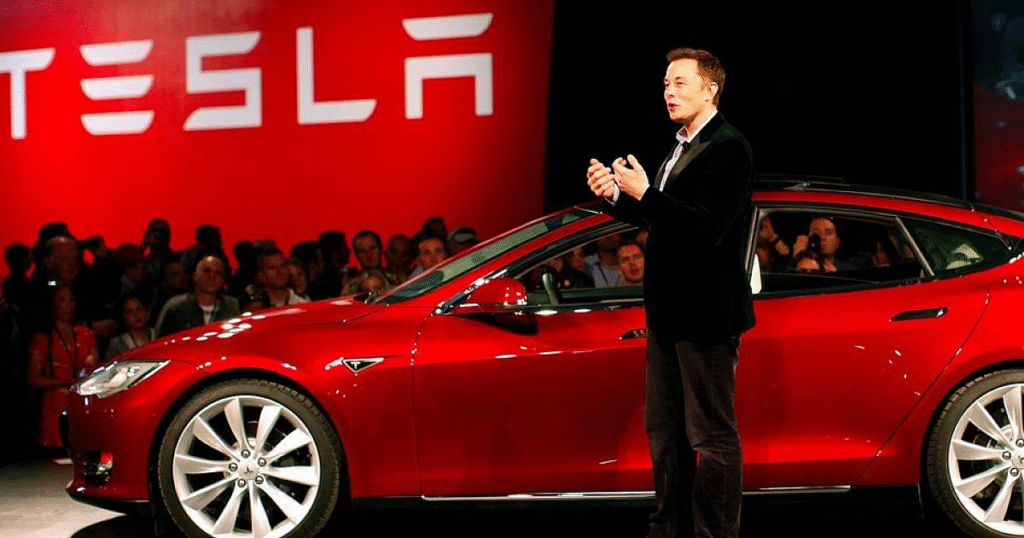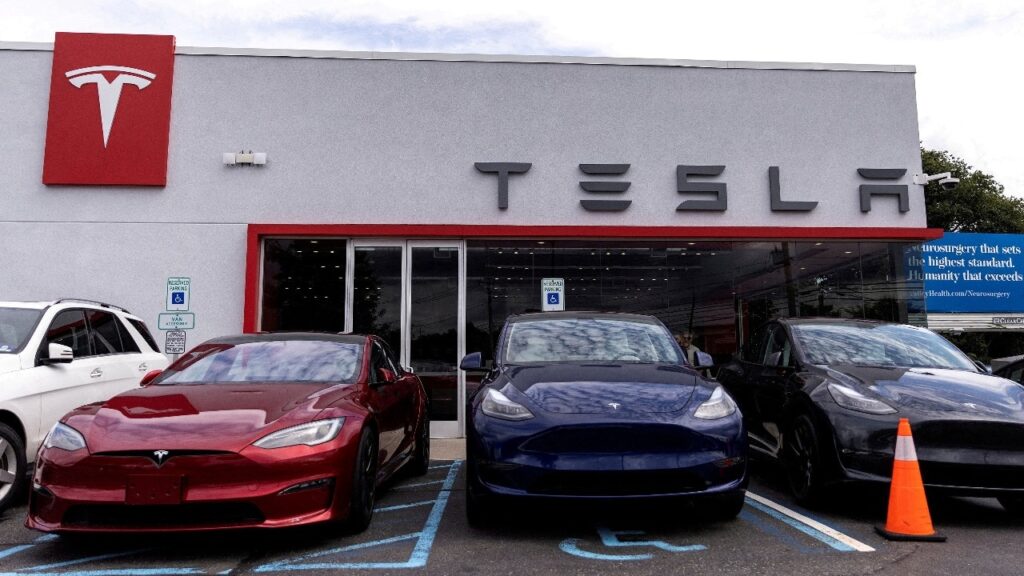
In a recent and much-anticipated announcement, the Heavy Industries Minister of India revealed that Tesla, the high-profile electric vehicle company led by Elon Musk, is currently not pursuing local manufacturing for its electric cars in India. Instead, the company plans only to establish showrooms across the country to sell its imported vehicles. This clarification has sparked a wave of discussions within the Indian automotive sector, among government officials, industry experts, and consumers eager to see a rapid expansion of electric vehicles in the country. The confirmation marks a crucial juncture in India’s ambitious ‘Make in India’ initiative, which aims to boost domestic manufacturing of EVs and related components to accelerate the nation’s green mobility goals.
Tesla’s Initial Entry Strategy: Showrooms Before Factories
Tesla’s arrival in India has been met with great excitement and expectations. Known globally for its pioneering electric vehicles and innovative clean energy products, Tesla has the potential to be a transformative force in the Indian electric vehicle market. The Indian government, eager to establish itself as a leader in electric mobility, welcomed Tesla’s entry as a major milestone.
However, the Heavy Industries Minister’s recent statements bring into focus Tesla’s current approach — focusing on showrooms and sales networks rather than setting up manufacturing plants. Tesla plans to import its vehicles as fully built units (CBUs) and sell them through exclusive showrooms in key metropolitan areas. While this ensures the brand is accessible to Indian consumers, it also means that Tesla’s local contribution to manufacturing, job creation, and supply chain development remains limited for now.
This cautious step by Tesla contrasts with the government’s vision, which sees local manufacturing as vital to the success of electric mobility in India. Showrooms allow Tesla to establish its brand presence, provide customer experience centers, and test the market demand. Still, without manufacturing capabilities, Tesla’s ability to drive down costs and make electric vehicles affordable for the mass market remains constrained.
Complex Challenges Holding Back Local Manufacturing
Tesla’s hesitation to manufacture in India at this stage stems from a variety of complex challenges inherent to the Indian EV landscape. Despite the country’s massive potential as a market and manufacturing hub, several critical barriers need to be addressed.
One major obstacle is India’s charging infrastructure. Tesla’s global success is heavily supported by its proprietary Supercharger network, which offers fast, reliable charging essential for long-distance EV travel. Unfortunately, India’s charging infrastructure is still in an early developmental phase, with limited fast chargers available outside a few urban centers. Without an extensive charging network, Tesla would face difficulties replicating its seamless customer experience and operational efficiency in India.
Furthermore, the supply chain ecosystem for EV components such as lithium-ion batteries, electric motors, power electronics, and semiconductor chips is still evolving in India. Tesla’s manufacturing success in the US and China depends on a sophisticated and mature supply chain. In India, much of the raw materials and components have to be imported, increasing costs and complicating logistics.
Another consideration is the regulatory and taxation framework. While India is making strides to incentivize electric vehicle production and sales, the policies remain fragmented across states and sectors. Import duties on fully built Tesla vehicles remain high, and though efforts are underway to rationalize tax structures for EVs, uncertainty persists. This complicates Tesla’s long-term investment decisions regarding manufacturing plants, which require stable and predictable policy environments.
Implications for India’s ‘Make in India’ Electric Mobility Vision
The Indian government’s ‘Make in India’ initiative has been a cornerstone of its plan to boost indigenous manufacturing capabilities across sectors, including electric vehicles. The vision is to not only promote local production of EVs but also to develop the entire ecosystem — from battery manufacturing to component supply and recycling.
Tesla’s current stance to restrict operations to showrooms signals a setback for the initiative. Local manufacturing by a globally recognized leader like Tesla would have brought multiple benefits — creating high-skilled jobs, encouraging technology transfer, and spurring domestic supply chains.
Without Tesla’s manufacturing footprint, the Indian EV industry may face a slower pace in reducing vehicle costs. Import duties on fully built imports remain substantial, making Tesla cars a luxury option accessible to a small segment of consumers. This price barrier could restrict Tesla’s ability to influence the broader market and impact India’s overall EV adoption rates.
Still, the government’s pragmatic response acknowledges Tesla’s showroom expansion as a positive development. Showrooms will help familiarize Indian consumers with electric vehicles and pave the way for a stronger market presence.
India’s Electric Vehicle Market: Growth Potential Amid Structural Challenges
India is poised to become one of the world’s largest markets for electric vehicles in the coming decades. Government policies, rising environmental concerns, and growing consumer interest have collectively propelled EVs into the spotlight. The country’s commitment to reducing carbon emissions and reliance on fossil fuels aligns perfectly with global climate action goals.
The National Electric Mobility Mission Plan (NEMMP) and subsequent policies have set ambitious targets for EV penetration. Several states have introduced EV policies offering incentives such as tax breaks, subsidies, and charging infrastructure development to accelerate adoption.
Despite this momentum, India’s EV market is still in its formative years. The high upfront cost of electric vehicles, mainly due to expensive batteries and limited economies of scale, remains a major hurdle. The absence of extensive fast-charging infrastructure deters consumers from switching to EVs, especially in tier-2 and tier-3 cities where public charging options are scarce.
Tesla’s entry was expected to address some of these concerns by bringing innovative technology and setting benchmarks for performance and design. Its decision to avoid manufacturing in India delays the prospect of affordable, locally produced Tesla models, potentially slowing mass-market EV adoption.
Role of Tesla Showrooms: Building Brand and Consumer Confidence
Tesla’s plan to open showrooms in major Indian cities like Delhi, Mumbai, Bengaluru, and Hyderabad represents a strategic move to build brand presence and educate customers. These showrooms will serve multiple purposes — offering hands-on vehicle demonstrations, test drives, and direct engagement with potential buyers.
Tesla vehicles are technologically advanced with features such as over-the-air software updates, autopilot capabilities, and superior battery technology. Educating Indian consumers about these benefits will be essential to creating demand and overcoming hesitations regarding electric vehicles.
Showrooms also provide Tesla with valuable feedback on consumer preferences, pricing sensitivities, and service requirements, which will be critical if and when manufacturing plans advance.
However, given that Tesla vehicles will be fully imported, prices are expected to be high due to import tariffs and logistics costs. This pricing dynamic will confine Tesla’s market primarily to affluent buyers, delaying the mass adoption the government envisions.
Government Policies and Incentives: The Drive to Localize EV Manufacturing
The Indian government has recognized the critical role manufacturing plays in the EV ecosystem and has introduced multiple incentives to encourage localization. The Production Linked Incentive (PLI) scheme for advanced chemistry cell (ACC) batteries is a flagship policy aimed at nurturing domestic battery manufacturing — a key bottleneck for EV production.
Besides central government initiatives, states like Maharashtra, Karnataka, Gujarat, and Tamil Nadu have formulated EV policies providing tax exemptions, subsidies for manufacturing units, land at concessional rates, and support for R&D.
While these policies provide a strong framework, challenges remain around implementation, ease of doing business, and ensuring seamless coordination between central and state governments.
Tesla’s decision to defer manufacturing plans despite these incentives highlights the gaps that still need addressing — particularly in charging infrastructure, supply chain development, and regulatory clarity.
Global Context: Tesla’s Manufacturing Footprint and Market Strategy
Tesla’s global manufacturing strategy revolves around large-scale gigafactories that produce batteries, vehicle components, and assemble cars. These gigafactories, located in the US, China, and Germany, enable Tesla to maintain control over quality, cost, and innovation cycles.
In emerging markets, Tesla tends to initially enter via imports and showrooms to test demand and regulatory environments. The Indian market fits this model, where Tesla is carefully evaluating the long-term viability of local manufacturing.
China’s market experience shows that government support, local supply chain maturity, and market size influence Tesla’s manufacturing decisions. India is rapidly growing but still catching up on infrastructure and policy fronts, making Tesla’s measured approach understandable.
Industry and Consumer Reactions: Mixed Perspectives
The automotive industry and EV stakeholders in India have expressed a mix of disappointment and understanding regarding Tesla’s announcement. Industry insiders note that while Tesla’s showroom presence will boost awareness and demand, the lack of manufacturing delays the broader industrial benefits India seeks.
Domestic EV manufacturers see this as an opportunity to consolidate their position, innovate, and ramp up production to meet the growing market. Companies like Tata Motors, Mahindra Electric, and Ola Electric have already made strides in launching affordable electric vehicles and developing local supply chains.
Consumers, on the other hand, remain eager to experience Tesla’s products but are concerned about high prices and limited availability.
Future Outlook: Could Tesla Commit to Indian Manufacturing?
Tesla’s current strategy to focus on showrooms does not necessarily close the door on future manufacturing plans in India. As India improves its EV ecosystem — with better charging infrastructure, localized supply chains, streamlined policies, and a growing consumer base — Tesla may revisit its stance.
The Indian government remains proactive in engaging Tesla’s leadership, emphasizing the country’s potential as a manufacturing hub and the benefits of technology transfer. Tesla’s final decision will likely depend on multiple factors, including regulatory certainty, profitability, and strategic alignment with global operations.
In the meantime, Tesla’s presence in India via showrooms will serve as a foundation to build brand loyalty and test market dynamics.
Conclusion: Tesla’s Showroom-First Approach Reflects India’s EV Transition Challenges
Tesla’s decision to limit operations to showrooms without committing to local manufacturing reflects both the tremendous opportunities and persistent challenges in India’s electric vehicle journey. While the entry of Tesla showrooms will boost awareness and spark consumer interest, the absence of domestic production delays critical economic and industrial benefits that come from local manufacturing.
India’s government continues to push hard to attract EV manufacturing investments, with incentives and policies designed to address infrastructure and supply chain gaps. The evolving Indian EV market offers immense long-term potential, but realizing this requires coordinated efforts between industry, government, and global players like Tesla.
As Tesla evaluates the Indian market, the coming years will be pivotal. Whether the company chooses to plant its manufacturing flag in India could be a landmark moment for the country’s green mobility ambitions. Until then, Tesla’s showrooms will stand as beacons of innovation, signaling the promise of electric vehicles while underscoring the work still ahead for India to become a true EV manufacturing powerhouse.

